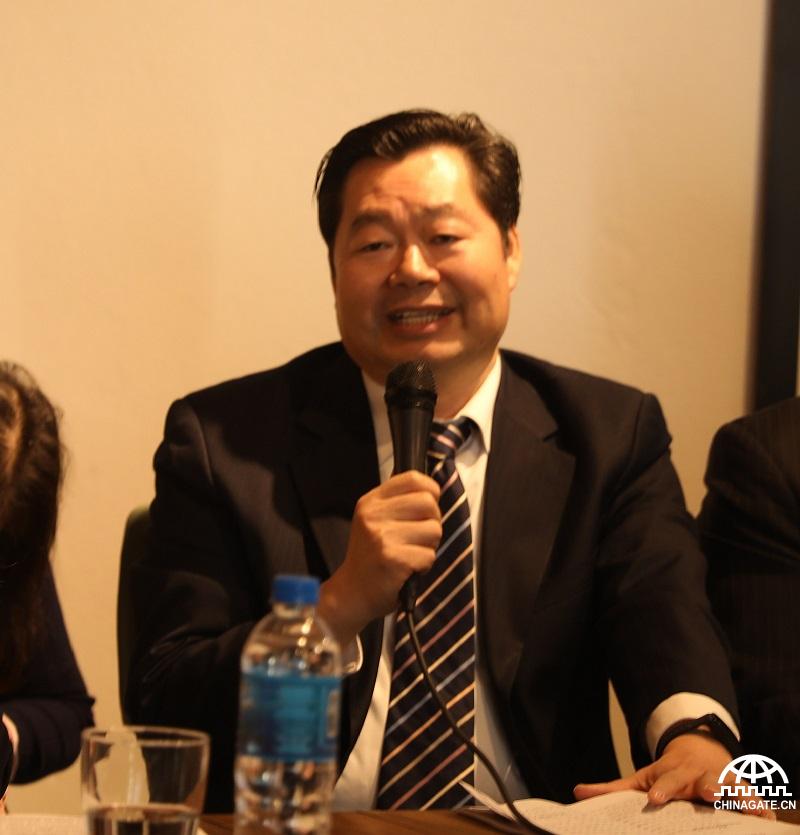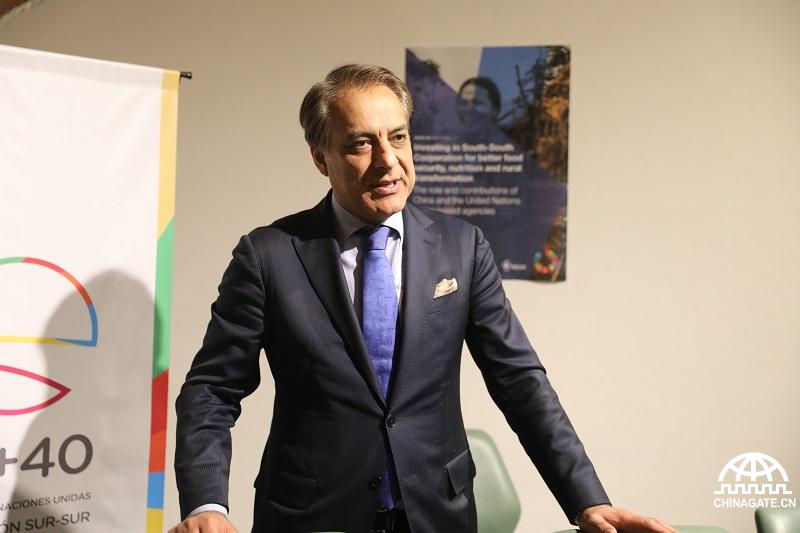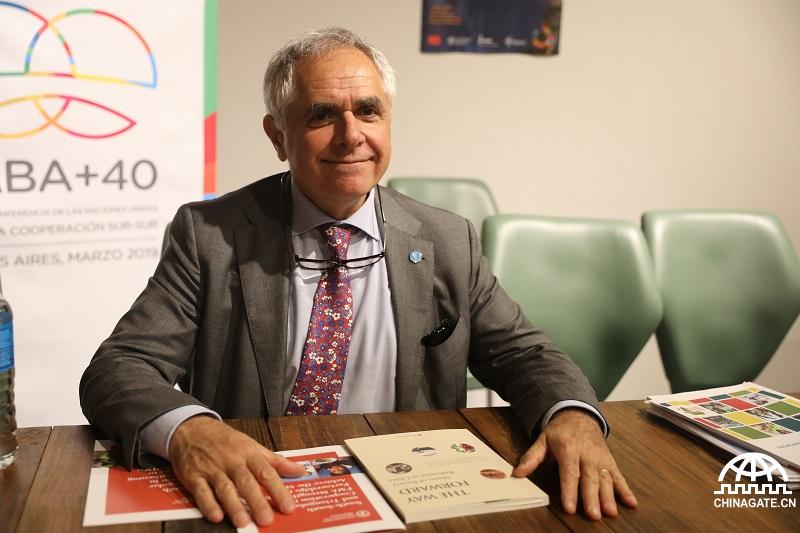China’s solution for innovative South-South Cooperation
chinagate.cn,March 23, 2019 Adjust font size:
High-level officials from UN appraised China’s experience in agricultural development and poverty reduction during a session co-hosted by Chinese government and the three United Nations Rome-based agencies (RBAs), i.e. FAO, IFAD and WFP, on Wednesday in Buenos Aires, Argentina. They hoped that China will play a bigger role in promoting South-South and triangular cooperation (SSTC).
As one of the side-events during the Second High-level United Nations Conference on South-South Cooperation, the session shared experience in using SSTC to promote food security, nutrition and rural transformation and finally to reduce poverty and hunger in developing countries.
“The anti-poverty campaign has made remarkable achievements. By the end of 2018, the impoverished population in China reduced from 98.99 million in 2012 to 16.60 million in 2018. Over 80 million people have been lifted out of poverty in six years, an average yearly reduction of over 13 million people,” said Hong Tianyun, vice minister of State Council Leading Group of Poverty Alleviation and Development of China, in his opening remark of the session.

Hong Tianyun, vice minister of State Council Leading Group of Poverty Alleviation and Development of China makes the opening remark of the session.
In recent years, China has engaged in various forms of exchanges and cooperation with UN agencies and achieved effective results. Hong stressed that China’s poverty alleviation is part of the world poverty alleviation campaign and the country is willing to exchange and share with other developing countries its experiences and offer suggestions to poverty governance across the world.
Hong also proposed three aspects for further cooperation. First, a communication and coordination mechanism for poverty alleviation with RBAs should be established. Second, countries should continue to jointly hold international poverty alleviation meetings or symposiums. Third, cooperation between China and other developing countries in poverty alleviation should be promoted, with the study of poverty alleviation cases and in the form of knowledge product development and knowledge sharing as well as capacity building.
“FAO, IFAD, and WFP are important forces driving South-South Cooperation in poverty alleviation. We will enhance cooperation with these three agencies, and jointly work for the implementation of 2030 UN Agenda for Sustainable Development,” Hong said.

Ashwani K. Muthoo, director of Global Engagement and Multilateral Relations Division of IFAD, in an exclusive interview with China.org.cn
As for experience sharing, Ashwani K. Muthoo, director of Global Engagement and Multilateral Relations Division of IFAD, said in an exclusive interview with China.org.cn that China has incredible track record over decades of reducing poverty, so the global community has a lot to learn from the country in terms of working in different agro ecological conditions or in different zones of the country.
Other countries can also learn from China’s experience in environmental issues, institutional issues and project development, he added.

Roberto Ridolfi, assistant director general of Programme Support and Technical Cooperation Department of FAO, in an exclusive interview with China.org.cn
When discussing about “the Global Solicitation and Challenge Prize on Best Poverty Reduction Practices” jointly launched by the World Bank, Asian Development Bank, FAO, IFAD, WFP, International Poverty Reduction Center in China, and CIIC, Roberto Ridolfi, assistant director general of Programme Support and Technical Cooperation Department of FAO, said that the No. 1 goal of SDGs is poverty reduction, which is an important part of sustainable development. The criteria for the best poverty reduction practices should give focus to sustainability.
